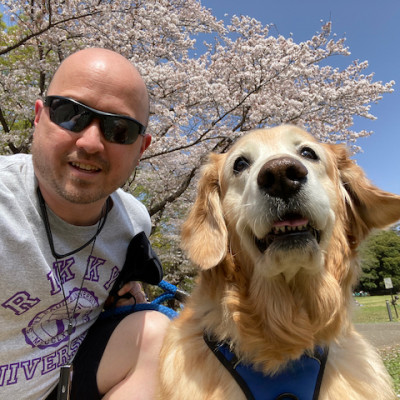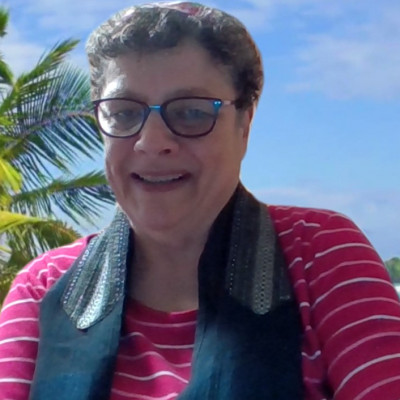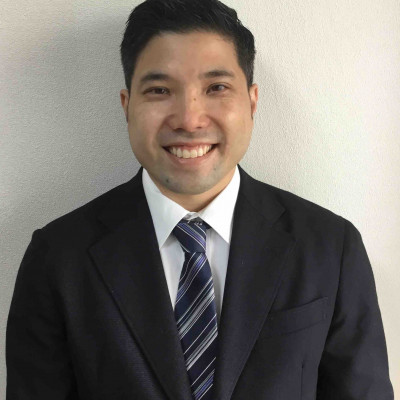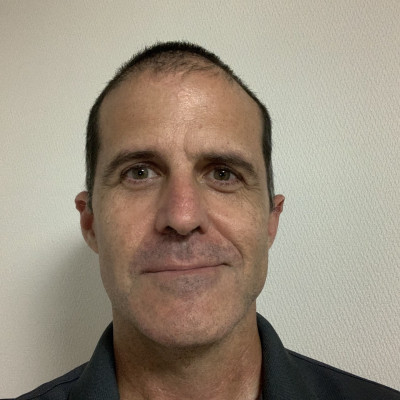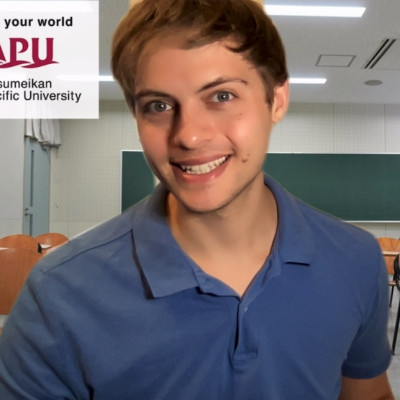Sessions / Technology
Virtual Exchange to Increase Students’ Intercultural Competence #2097
Virtual exchange (VE) often suffers from an over-reliance on individual teachers and specific courses. This presentation outlines a project, showing how the authors increased VE opportunities, starting with creating a model of the attitudes, knowledge, skills, and values the researchers hoped VE would instill. Students worked towards these outcomes through several modes of VE which were evaluated using BEVI-j and interviews. This presentation will share the results, now being used to improve access to VE.
Producing a Podcast During the Pandemic #2235
Our university's popular overseas research clerkship program for 2nd year students was suddenly canceled during the pandemic. Rather than also cut the preparatory classes, we decided to try something new. This was the genesis of English Communication: Podcasts & Podcasting. By the end of the semester, we created ten episodes with listeners from more than twenty countries. Come and learn how you can start something similar at your school.
Making an Attractive Website With Moodle #1902
Moodle is familiar among language teachers as a Learner Management System. However, by simply copying and pasting some basic HTML computer language, Moodle can also be used to create attractive, easy-to-navigate websites. With reference to a website created for teachers at a university, the presenter will explain how to make use of standard Moodle features, as well as some simple HTML. The presenter will also share ideas about user-friendly design and avoiding pitfalls. The workshop is suitable for people with no HTML experience, as well as those who are interested in learning how to expand the potential of Moodle.
Using Zoom to Record On-Demand Teaching Content #1912
Due to the pandemic, many educators became familiar with using Zoom to teach live lessons online. Zoom is also useful for making videos that can be available on-demand to supplement in-class teaching. This workshop will demonstrate how to take full advantage of Zoom's features including using slides as a virtual background. Slide design for optimizing this feature will be demonstrated. Participants can try these features out on their own computers or simply observe. Questions and suggestions from participants are welcome.
Net Gain: Multiplatform Approach to Distance ESP Classes #1909
Remote learning demands teachers be more resourceful, tech savvy, and creative than ever. This session introduces successful, concrete techniques for a productive, student-centered environment at a distance, predicated on original simultaneous interfacing of Zoom and Teams with LMS follow-up. Focus will be on ESP projects (medical, international horticulture majors) including multimedia presentations, tasks, out-of-class online group meetings, as well as alternative testing and large class management techniques. Workshop participants will experience/evaluate games, quick tasks, and projects. They will also view class video clips, and brainstorm ideas to increase the “net gain,” to perhaps make these multiplatform techniques their own.
Microsoft Teams and Class Notebooks: Online and Face-to-Face #1900
Microsoft Teams is a fantastic resource for universities with Office 365 subscriptions. Used in conjunction with software available through the subscription, you can create a rich learning environment. This workshop will go through how to set up and get the most out of a Teams course. Topics include creating a Team and Class Notebook, Teams channels, creating and assessing assignments (quizzes through Forms, attached Office files, the Class Notebook), sharing content with Class Notebooks (videos, individual feedback, handouts), and Teams Meetings. This workshop will give you a clear understanding of Team’s capabilities, limitations, and how to use it.
Designing Computer-Scored Speaking Tasks #1917
This workshop will guide participants through the process of creating and administering online speaking tasks in Moodle using a custom speech assessment quiz-type. The speaking tasks can either be automatically scored by the computer or manually scored by the teacher. Sample speaking tasks can include audio, video or text prompts and can include a mixture of open-ended and closed-ended tasks. Participants will have the opportunity to demo sample computer-scored speaking tasks and to design their own custom speaking tasks. At the end, download and installation of the speech assessment quiz-type will be covered.
A Tutorial to Make Your Online Classes Look Like a YouTube Video #1904
In this workshop, participants will receive a hands-on explanation of how to produce high-quality video lectures as well as livestreams for platforms such as Zoom and Microsoft Teams. Aimed towards beginners, the contents of this workshop will cover necessary information about equipment and software so that participants will have the basic knowledge needed to begin producing content that can rival professional YouTube filmmakers. Though all of this information is already freely available online, the presenter will use his experience as an English teacher to focus on information that is most relevant to EFL teachers.
Designing Your Presentation Media #1898
Whether for presentations or classroom use, most of us just "make" our media, often with little regard to functionality or aesthetics. This workshop will focus on ways to add useful design elements to your Keynote or PowerPoint slides. Putting more thought into how your media looks and behaves will make your presentations more appealing to audiences, easier to understand, efficient to create, and simpler to control. During the workshop, I will demonstrate some techniques I've found useful, and then set a couple of design tasks to complete. Please bring a device with either Keynote or PowerPoint installed.
Bringing Out Student Creativity Through Speaking Activities With Flipgrid #1907
This presentation will focus on the use of Flipgrid, a mobile application that allows students to record “selfie” video responses to a teacher’s prompt as an option for asynchronous speaking activities. The presenters will discuss their experiences using Flipgrid as graded speaking activities in their English classes at two universities, focusing on the successes and failures. The presenters will lead a discussion that will focus on how Flipgrid could be used in other ways, including in hybrid and f2f classes. Participants will leave with an understanding of Flipgrid and how it could be implemented into their teaching context.
Facilitating Engagement and Interactivity With a Virtual Lesson Platform #1899
Research has shown that Nearpod promotes active learning through its ability to facilitate collaborative participation between students, teachers, and lesson content (Amasha et al., 2018, Hakami, 2020). My workshop will showcase how Nearpod can be used for effective discussions, reading activities, vocabulary activities, student-paced assignments, informing future instruction through its post-class reports feature, and more. Teachers will receive opportunities to test the functions as well. Finally, I will share the results of a quantitative survey of student self-reported perceptions of Nearpod, which indicated that students felt an overall positive effect on their motivation and interaction in their English classes.
Immersive Virtual Reality for All: Getting Started Step-by-Step #2025
Being immersed in virtual reality using a headset device encourages language use and improves learner confidence. Launching a virtual reality program is a fairly simple process. In this session we will introduce you to the Immerse Virtual Language Experience Platform, an integrated application to connect with learners in virtual reality for facilitated language instruction. This session will provide step-by-step details to prepare you to bring your English program to life in virtual reality.
The Use of Technology for Visual Storytelling in the ESL Classroom #2018
In this hands-on workshop, participants will learn the techniques and digital tools for designing and implementing lessons on visual storytelling in the ESL classroom. The workshop looks at the stages of storytelling from brainstorming, storyboarding, scriptwriting, recording, and editing to producing student-centered short films. Participants will leave the session with techniques for implementing visual storytelling in their lessons as well as their own handcrafted visual story to share with their students.
Welcome to Cambridge One, the Brand New Online Learning Platform #2382
This presentation introduces the Cambridge One online learning platform, the all-in-one online English language learning platform for easy access to all teaching and learning materials across multiple devices including smartphones and tablets as well as on PCs. This session will look at how Cambridge One lets you plan, present, and assess student performance, all in the same place whilst also demonstrating the online learning components learners can fully access on their smartphones.
The Evolution of Speech Recognition and English Learning #2400
This presentation covers the IntelliSpeech assessment system developed by EnglishCentral as well as AI-based speech solutions from other providers in the English learning market. It reviews the use of these technologies in read-aloud applications, elicited imitation, sentence building and finally conversational chatbots. The accuracy and efficacy of these systems are discussed as well as the pedagogy that underpins them.
Feedback Strategies That Enhance Social Presence in Online Classes #1952
In asynchronous online learning environments, students often report a feeling of isolation or disconnect from their teachers and classmates that negatively impacts their learning experiences. Thus, a challenge educators face while teaching online is how to effectively build a rapport with students to help create a community of learners. This presentation will describe innovative approaches to providing feedback that can diminish this feeling of isolation, increase motivation, and improve student-teacher rapport in online learning environments.
CALL SIG Forum #2415
The 2022 JALT CALL SIG forum will feature 3 different speakers on the topics of Games and Play, which will be the theme of the 2022 JALTCALL conference.
Cancelled Eurovision Comparison Writing With Google Suite Applications #2155
The presenter will illustrate a lesson that was used with university students to teach comparison essay writing. The topic was Eurovision performances, and the applications that were used were Google Docs and Jamboard. Through this session, attendees will develop a greater awareness of how Google Docs and Jamboard can be used for brainstorming and collaboration while also increasing opportunities for meaningful communicative output.
Integrated Use of VOD and Zoom in German Online Teaching #1943
This presentation looks at the strengths and weaknesses of synchronous (Zoom) and asynchronous (Video on Demand) teaching approaches in German teaching in Japan. For this purpose, a student survey was carried out in four German classes at Hiroshima University (N=78). In order to provide different types of learners with an effective online teaching method, it will be argued that a combination of both types of teaching approaches is required.
English Bento: Training Speaking and Vocab With Microlearning and Feedback #2163
English Bento is a digital platform that can be used in class or for homework. It trains speaking, pronunciation, vocabulary, as well as other English skills with 11 different activities. A brief demonstration of how educational principles drive each activity will be given. This is followed by a description of the instructor’s dashboard which allows teachers to create classes, set assignments, and track students’ progress using three metrics: progress, score and time on task.
The University Students’ Overview in the Virtual Listening Class #2332
This study aimed to see the difficulties and the impact of the COVID-19 pandemic on a virtual listening class, and the students’ experiences in the listening class at the university level who are living in a rural area in Indonesia.
Developing and Adopting Best Practices for Remote Teaching Post-ERT #2111
With COVID-19 continuing to have an impact on education, the EFL teaching community has the opportunity to work together to develop and adopt effective standards that will allow us to move beyond the emergency remote teaching mindset to a more structured form of remote teaching with best practices in place to address the technical, educational, social, and psychological needs of both students and teachers.
Reflections on Developing an On-Demand Curriculum #2131
Participants will join a roundtable exploring how teachers at a university in Japan transformed their in-person English communication courses into on-demand lessons. Topics include the techniques used to create content, how the techniques evolved over time, how the content was distributed to students, and how communication was encouraged in an on-demand environment. Participants will be encouraged to consider how the techniques and content created for the course could be integrated with future in-person classes.
Cancelled Will Online Learning Flourish or Wither After the COVID-19 Pandemic? #1985
During the pandemic, many teachers and students were forced to learn online. When the pandemic ends, how widely will virtual classrooms continue to be used? Will teachers and students return to face-to-face format? Or will they continue to prefer virtual classes? What variables might affect the choice between real and virtual learning? The presenter will host an informal birds-of-a-feather meeting where we attempt to predict and prepare for the post-pandemic era.
AR, VR, and Other 3D Applications for CLIL Student Research and Learning #2230
Three researchers, two at the university level, and one at a public high school, are continuing to build a community to develop tech skills through AR, VR, and other 3D modelling technologies and to enhance their students’ learning in English. This workshop will go over the development of the technology used in the classroom, the workshop and lectures given to the students, and the development and status of the high school students’ developed research projects.
Duolingo: Efficacy and Appeal #1973
Use of MALL in university language learning contexts looks set to grow as students’ natural affinity for mobile technology continues to increase. This presentation will discuss a semester-long study designed to research the efficacy and the experience of using the mobile-learning application Duolingo as a language learning aid. It examines the impact of the regular use of this application on student language acquisition through pre- and post-tests, and it investigates student attitudes through survey results.
Effectiveness of Feedback in Computer Simulations for Pragmatics Instruction #1982
This study presents research on the role of feedback types in a computer simulation of an academic advising session that was designed for instruction of refusals and requests. Feedback was operationalized along the dimensions of sociopragmatics (feedback on the overall politeness of a selection in the simulation) and pragmalinguistics (feedback on the forms that contributed to impoliteness). This talk highlights issues with designing computer simulations and presents data on learning outcomes.
DeepL and the Dilemma for English Writing Courses #1989
In this presentation, the researcher discusses an exploratory study that investigates how “human-like” DeepL translations are and what ramifications neural machine translations (NMT) will have on English writing courses. The researcher provides some background on NMT, presents results from a study that examined teachers’ evaluations of student essays (some written in English and others in Japanese and subsequently translated into English), and finally considers the dilemma of DeepL for English writing courses and pathways forward.
The Emergency Remote Learning Process of EFL Students in a Global Course #2022
The presenter will demonstrate how Japanese university students were able to face the challenges of Emergency Remote Learning (ERL) when working on group projects. Most students rated themselves as adaptable to remote learning because they completed tasks on time and participated actively in Zoom sessions. However, at times, they felt unmotivated. Their reflections illustrate that ERL was difficult but rewarding as they had acquired technological skills that they could use after the end of COVID-19.
Japanese Students’ Reflections and Perspectives on Audio-Visual Feedback #2102
An area of ESL pedagogy that often frustrates both teachers and students is written corrective feedback. Recently, an alternative form of multimodal feedback, video screen capture feedback (VSC), that can tackle criticisms of written corrective feedback has been gaining attention. In this session, the presenters will discuss the results of a study conducted at a private university that trialed VSC. They will also expand on students’ opinions and comment on their experiences using the technology.
English Bento: A Speaking & Listening App w/ Progress Tracking Dashboard #2355
English Bento is a speaking and listening training app for students and a progress tracking system for instructors. It was built on the principles of micro-learning, feedback, and fluency training. This workshop begins with participants using the app as a student; followed by a demonstration of how their student data is displayed on the instructor’s dashboard. English Bento is assignment-based with pre-existing content, but also allows instructors to add their own. This workshop is hands-on.
Getting Creative in Academic Writing: A Flash Fiction E-publication #2149
This presentation will first provide an overview of the Spring 2020 ERTL transformation of a traditional paper notebook weekly journal assignment into an inter-classroom e-publication: The University Freshmen Flash Fiction Series. Then, the results of learner self-reflection (N=35) regarding their creative writing assignment experiences in a dedicated Academic Evidence-Based Essay Course will be shared. Finally, a rationale for including creative writing as a part of a university freshmen learners’ writing portfolio will be discussed.
Comparing Online and In-Class Versions of a University EAP Program #2173
While challenging, the COVID-19 period has provided the opportunity to identify strengths and weaknesses of online versions of what would otherwise be classroom based courses and activities. This presentation compares online and in-class versions of a university EAP program for students wishing to study abroad. Results suggest that greater online and classroom integration is possible.
Higher Education During COVID- 19: Wellbeing of Teachers and Students #2312
Students’ and teachers’ wellbeing has emerged as a common concern in research during COVID-19. Based on qualitative research and the data of 10 FGDs with teachers (25) and students (19) in private universities (11) in Bangladesh, the paper shows that online teaching is affected by contextual, material, physical, social, and psychological challenges, and, consequently, both teachers and students experience anxieties and stresses. Students from a non-privileged background suffer more than others.
Retooling a Makerspace Class for Blended Learning #2186
What happens to a makerspace class when the space is taken away? This workshop will share how a makerspace class used a blended learning model (Kitchen, 2021), online makerspace tools (e.g., Microbit and Tinkercad), and communication activities for online instruction. It will also show initial research findings from an exploratory study investigating five university students’ written journals for language development through descriptive statistics, and makerspace learning benefits using initial and thematic coding.
Online Speech: Speech Recognition in the Classroom #2215
In recent years the increase in availability of computerized speech recognition and speech synthesis has led to exciting possibilities in the field of foreign language learning. Traditionally learning activities do not require students to vocalize their responses. This paper presentation will show an analysis of the effectiveness of speech recognition using online speaking on student reactions over 3 institutions as part of Kakenhi research.
Investigating Academic Engagement Through Digital Tools Integration #2189
A case study exploring Japanese university students’ reluctance to adopt technology for learning was conducted integrating technology into an academic English course. Qualitative data explored student experiences and changes in perceptions about using technology using factors from the technology acceptance model (TAM). Two major factors influenced perception with a uniquely Japanese socio-cultural factor emerging as a possible barrier to technology interaction. A model for integrating technology to increase academic engagement will be presented.
Cancelled Digital Creative Pedagogy – A Novel Framework for a Multiliterate Classroom #2232
The study investigated if digital creative pedagogy (DCP) can be applied to accommodate the needs of multiliterate classrooms. DCP is a pedagogy that encourages learners to employ digital technologies for creating bricolages. As far as this researcher is aware, no other study has been conducted to examine DCPs effectiveness.120 multilingual, multicultural, and multi located female adolescents were attending online classes during COVID-19 pandemic. The research recommends that teachers can adopt DCP for enhancing multiliteracies.
Assessing Conversation Ability With a New Tool: P-CHAT #2225
P-CHAT is a software tool that provides teachers with actionable data, and gives students automated feedback on conversations with their peers. Each conversation session is recorded and analyzed automatically. Student progress on key metrics can be tracked over a semester or year. In the presentation, P-CHAT will be introduced by its designer and it’s developer.
Facilitating a Study Abroad (at Home) Language Program Through Technology #2260
This presentation is an exploration of the process of designing and running an online study tour program between a Japanese University and an Australian University in Vietnam. It starts from initial fears and panic over pivoting from a planned face-to-face program, and moves on to the conceptualisation and implementation of a 2 week online study tour.
Opportunities for Implementing an LMS During and After COVID-19 #2234
As we transition back into the classroom, digital tools have taken center stage to aid and assist in our teaching. One of the more effective methods is building an effective LMS system. This presentation will focus on one of the more popular systems, Moodle, and how it can augment any classroom to deliver quality digital resources to all students.
COIL for Nursing: Integrating Intercultural Competence in the Curriculum #2286
Collaborative online international learning (COIL) is a pedagogical approach that allows students to experience intercultural exchange without the financial burden associated with traditional mobility programs. In this study, we examine the impact of such a COIL program on Japanese and American students regarding their attitudes and beliefs towards using English as lingua franca in nursing education. We assessed students’ perceptions of multilingual and multicultural collaboration through four psychometric scales.
Blended and Smooth: A Successful EFL E-Learning Concoction #2183
In this presentation, a university EFL teacher will detail their implementation of the English Central e-learning platform in a blended learning environment. Considering student’s reported perspectives and experiences, as well as current correlative research, the presenter contends that the success of the endeavor is owed to this specific platform’s strengths coupled with a balance of face-to-face and self-study e-learning components.
Comparing Vocabulary-Learning Software: Motivation and Time-on-Task #2201
This presentation compares two paid vocabulary acquisition software applications: EnglishCentral and iKnow. Study results provide insight into how much time a group of university students spent using each application over the course of a semester, and how motivating students found each application. Additionally, practical information is provided for teachers and administrators thinking about implementing language-learning software in the classroom. English learners interested in finding out more about vocabulary applications are welcome to attend.
Cancelled Effective Online Sentence Practice With the LingoLab Web Apps #2178
Participants will be introduced to the free online LingoLab websites, which feature an engaging sentence-building activity. Various combinations of text, audio, and image can be used as the cue, to which the user responds by creating the appropriate phrase to answer with from the given target words and distractors. It can be carried out as a self-study activity (with a progress-tracking function for teachers), as a test, or as a multiplayer quiz.
Virtual Exchanges: Teaching and Learning From the Expert Peer #1995
With the recent dramatic rise in online exchanges, it is now possible for students to get help from expert peers overseas; however, little is known about the processes of expert peer collaboration. Drawing on a sociocultural view of learning, this study investigates the experiences of Japanese learners of English when participating in a seven-week virtual exchange with American learners of Japanese through the lens of activity theory.
An Animated Video Platform That Provides Immediate Feedback: Brainpop #2283
Brainpop is an online platform that is easy to use when teaching EAP, EFL, and MFL. It can document students’ learning efforts and is available to students asynchronously via multiple devices. This workshop will explain the scope and breadth of what resources Brainpop makes available, discuss the researcher’s experience regarding ease of use for teachers and students, demonstrate Brainpop’s learning management system, and present results from a questionnaire of learner perceptions of Brainpop.
Enhancing Online Language Education Through Virtual Reality. #2109
This presentation will demonstrate a way to enhance online distance learning through using virtual reality to simulate the multimodality lacking in video conferenced language classes. The presenter will show how using VR in conjunction with video conferencing can greatly enhance learning with explanation and demonstration of the multimodality that VR can bring to online learning. Finally, the presenter will address the limitations of VR such as cost and the physical aspects of implementing VR.
VR Apps for Collaborative Language Learning: A Comparison and Contrast #2035
To assist teachers and learners in HyFlex learning settings, the presenter will make a comparison and contrast of VR apps that can support collaborative language learning. Apps such as Mozilla Hubs, Virbela Open Campus, Frame VR, Spatial, and Engage have been selected due to cross-platform compatibility and minimal or no cost addition. The audience will get familiar with the functions of these apps and be able to make an informed choice that serves them well.
PronouncePro: A Smartphone Application for English Pronunciation Study #2133
Introducing PronouncePro: a smartphone application used for the study of English pronunciation and related data gathering. In this presentation, audience members will be guided through the app while presenters discuss the decision making process involved in its development. Finally, attendees will be asked to discuss the potential of PronouncePro as both a resource for study and as a research tool. This feedback will help to improve upon future versions of PronouncePro.
Japanese Public Schools: CALL for All? #1992
What technology is actually used in public schools in Japan? Ongoing government policy changes and projects (GIGA School Programme) regarding technology suggest classrooms are evolving and modernising. This presentation will discuss the results of a mixed-methods survey about the availability and usage of CALL in public schools as of spring 2021. Results are based on the responses of English teachers across Japan, giving insight into the current landscape of technology in Japanese public schools.
How Well Does Written CMC Prepare Students to Discuss Face to Face? #2100
Research has shown that text-based computer-mediated communication (CMC) has many advantages over face-to-face communication, and the skills learned in the former can transfer to the latter. These findings suggest that CMC may remain pedagogically useful after the pandemic to prepare students for classroom interaction. The present study compares EFL students’ group discussions in two written CMC contexts (synchronous and asynchronous), focusing on how effectively these discussions prepare students for subsequent face-to-face discussions.






